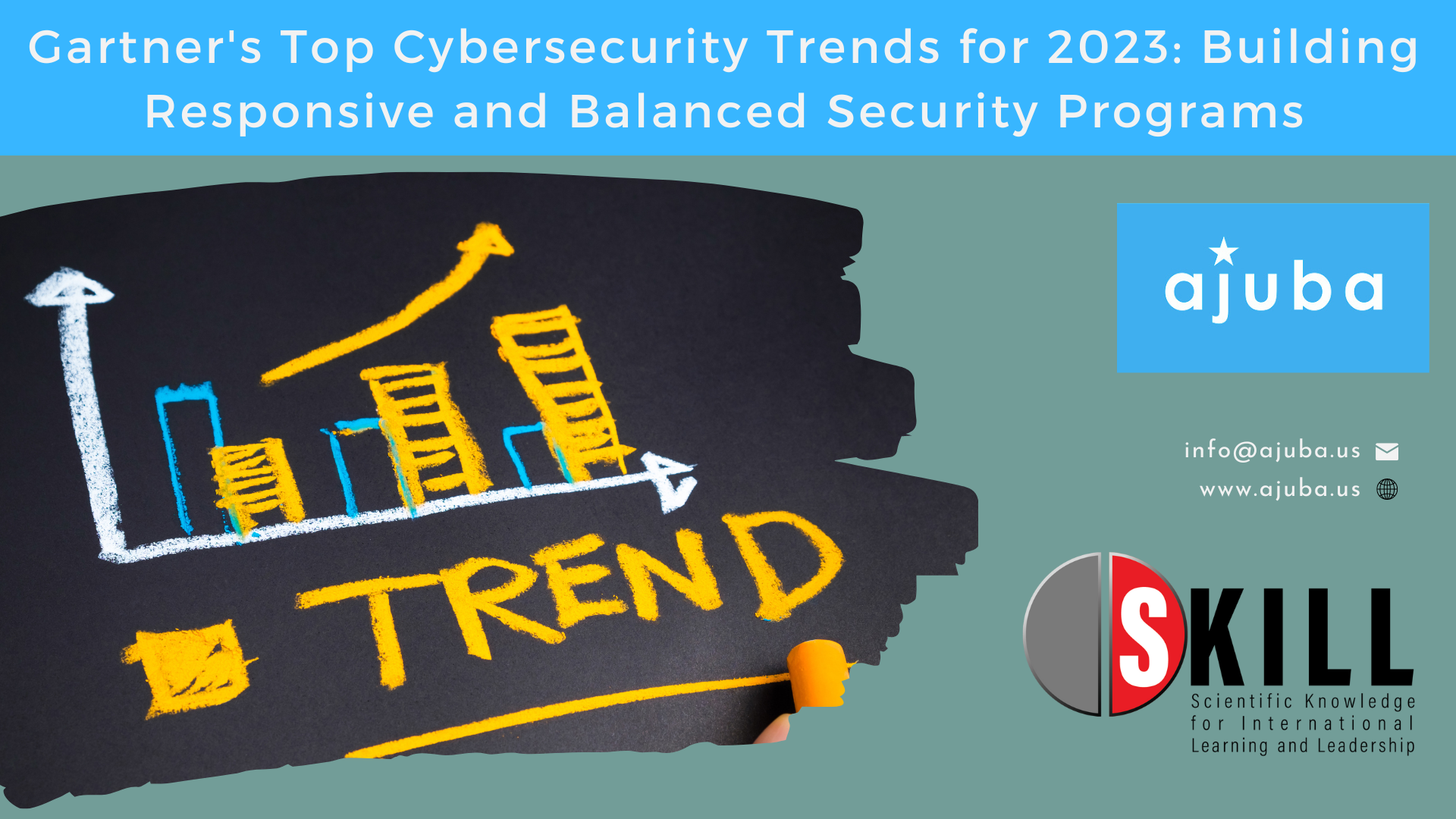April 24th, 2023
Cybersecurity threats are constantly evolving, making it essential for organizations to stay up-to-date with the latest trends in cybersecurity. As we approach 2023, Gartner has identified nine top cybersecurity trends that will help limit risk and enable organizations to create more responsive ecosystems, restructure their approaches, and rebalance their practices.
The first theme identified by Gartner is creating responsive ecosystems, which involves applying a continuous approach to threat management and cybersecurity validation. The three trends in this theme are:
- Threat Exposure Management: This trend involves continuously refining cybersecurity optimization priorities to address gaps in an organization’s posture.
- Identity Fabric Immunity: With balanced investments in prevention and detection and response, this trend aims to build more digitally immune identity ecosystems to minimize defects and failures and protect against attacks.
- Cybersecurity Validation: This trend merges techniques, processes, and tools to validate how potential attackers would exploit an identified threat exposure and how protection systems and processes would react.
The second theme is restructuring approaches, which involves balancing the need for operational simplicity with other platforms and providing solutions to cover more of an organization’s expanding attack surface. The three trends in this theme are:
- Cybersecurity Platform Consolidation: This trend involves decreasing complexity, simplifying operations, and making employees more efficient by using fewer vendors and benefiting from improved staff efficiency and integration, and more features from fewer products.
- Security Operating Model Transformation: This trend distributes technology and analytical work to expand the volume, variety, and velocity of cybersecurity risk decision making and accelerate business outcomes.
- Composable Security: This trend is designed to protect the changes of composable business and applies to all aspects of a business process by integrating cybersecurity controls into architectural patterns and applying them at a modular level in composable technology implementations.
The third theme is rebalancing practices, which supports the need for balance between people, process, and technology to successfully reduce cybersecurity risk. The three trends in this theme are:
- Human-Centric Security Design: This trend prioritizes the role of employee experience across the controls management life cycle by minimizing unsecure employee behavior, drawing upon the behavioral sciences, user-experience (UX), and related disciplines.
- Enhancing People Management: This trend shifts focus to human-centric talent management tactics to attract and retain talent and sees functional and technical maturity improvements when Chief Information Security Officers (CISOs) implement them.
- Increasing Board Oversight: This trend mandates board members attend to cybersecurity as part of their governance and oversight activities and will require additional cybersecurity expertise on boards going forward.
Overall, these trends emphasize the importance of a balanced approach to cybersecurity, combining technology, structural, and human-centric elements. By rethinking their balance of investments across these areas and implementing these trends, security and risk management leaders can design and implement cybersecurity programs that are responsive, adaptable, and sustainable.
At Ajuba we recognize the need for cybersecurity awareness and education in India. We have partnered with ThriveDX of Israel to offer one-year certification program at Rayat-Bahra University on Cybersecurity. Our one-year certification program provides students with the skills and knowledge they need to succeed in the field of cybersecurity. Our program covers a wide range of topics, including network security, ethical hacking, incident response, and risk management. Our experienced instructors provide hands-on training, and students have the opportunity to work on real-world projects, preparing them for a successful career in cybersecurity.
With our program, graduates can expect to be in high demand in the job market, as organizations in India and around the world are actively seeking skilled cybersecurity professionals to protect their data and networks.
If you’re interested in a career in cybersecurity, we encourage you to consider our one-year certification program. We’re committed to helping you achieve your goals and meet the growing demand for cybersecurity professionals in India.
